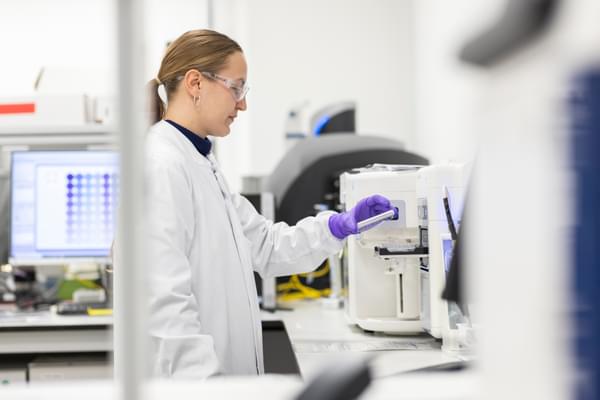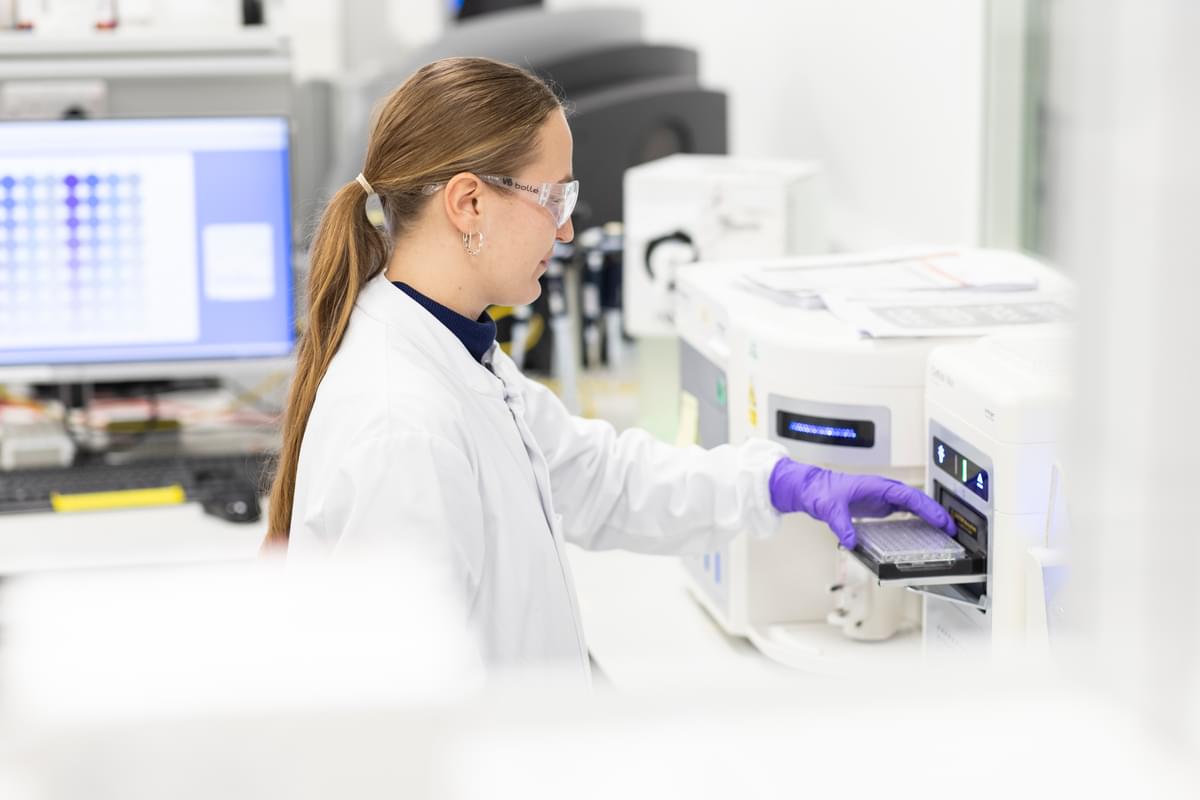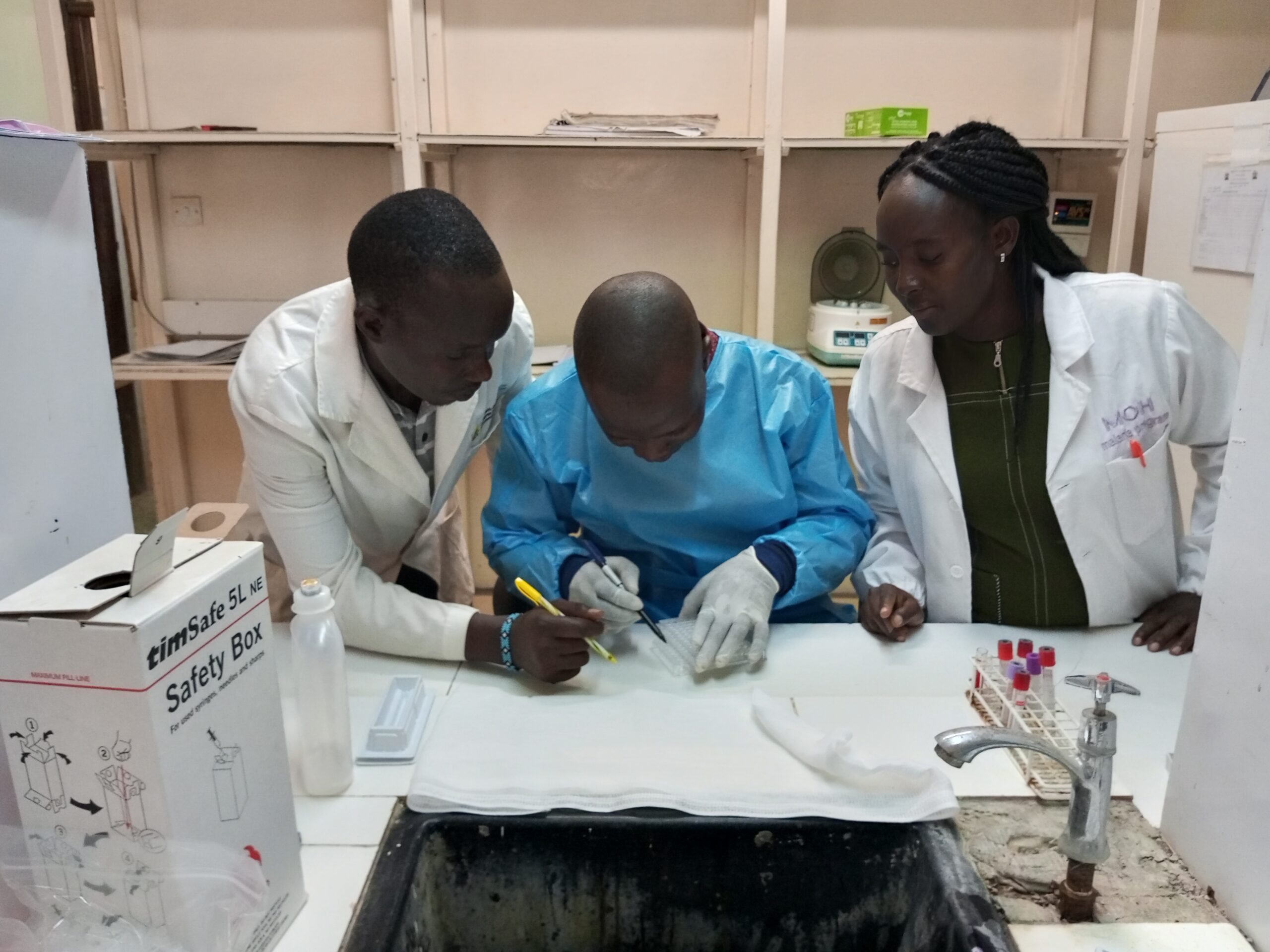Translational rare disease centres
With this £40 million we aim to build on the UK’s rich, rare disease research base, to kickstart Centres dedicated to rare disease translation.

Application overview and timeline
| Funding type: | Grant |
| Total fund: | £40 million |
| Maximum award: | £2,500,000 |
| Number of projects: | 4-5 planned |
| Expressions of interest (EOI) opening date: | 24 April 2023 |
| Webinar: | 3 May 2023 |
| EOI closing date: | 26 May 2023 |
| EOI decisions communicated: | 23 June 2023 |
| Full application opening date: | 29 September 2023 |
| Workshop for invited participants (London): | 6 July 2023 |
| Panel meeting: | 11 December |
| Full application decisions communicated: | December 2023 |
| Start date: | Q1-Q2 2024 |
Overview
We will work with the academic sector in the UK to transform rare disease translational research.
With this £40 million we aim to build on the UK’s rich, rare disease research base, to kickstart Centres dedicated to rare disease translation. This funding, over a five-year period, will enable the chosen Centres to establish and embed themselves within the UK ecosystem, becoming beacons of translational excellence and best practice.
We invited collaborative applications to form Centres – each bid being led by a single UK academic institution. The call for Expressions of Interest has now closed. We envisage funding four to five such Centres, as well as a Co-ordinating Hub.
Centre bids should showcase the existing capabilities and strengths of the consortium in rare disease, and outline how the funding will help them to address translational challenges in the current ecosystem. From the significant scoping we have already undertaken, we expect Centre bids to have either a capability-/ modality-based or disease area-based focus e.g. advanced therapeutics, or paediatric rare diseases.
Networking across the Centres is key to our vision, and we will be putting in place a co-ordinating Hub function, applications for which will be managed separately to this Centre call.
Since the call closed on 26 May we have been reviewing the Expressions of Interest and, after triage, will hold a workshop for shortlisted applicants at the start of the full application phase.
Matchmaking at this stage is a possibility if we see appropriate opportunities. We will not fund duplicative activities but will encourage collaboration between those with potentially synergistic bids. Members of Centre consortia do not need to be geographically co-located.
Funding available
This fund is now closed to new applications.
What we’re looking for
Through the Translational Rare Disease Centres we aim to strengthen the UK’s rare disease translational capabilities by:
- Increasing the volume of rare disease research delivered and catalysing translation of rare disease research
- Supporting early career researchers to establish their careers in rare disease translational research
- Increasing the understanding of the needs of rare disease patients with industry and policy makers
- Becoming a central point for engagement with the patient community
What are some of the main challenges?
For information on some of the identified challenges, please refer to the UK Rare Diseases Framework – which sets out a coherent, national vision on how the UK will improve the lives of those living with rare diseases.
How do we expect Centre bids to tackle these challenges?
We expect Centre bids to bring together critical mass to address a major challenge area and be designed around an identified, tractable opportunity in an area of rare disease translational research. Bids should be collaborative and include the diversity of skills required to bring about real change in an area of challenge. In every bid we expect to see:
- Inclusion of appropriate specialists across career stages, including early career researchers.
- Demonstration of harmonisation with existing resource/ capabilities in the area. We expect Centre applicants to have thoroughly scoped their area of focus and connected with appropriate key players. We will not fund duplicative activities and are looking for bids that either create new or add value to existing infrastructure/ resources. Between EoI and Full application stage we may work with applicants to refine applications and broker relationships between those proposing complementary activities.
- A well thought through and appropriately costed Patient and Public Involvement and Engagement strategy (PPIE). We will be including individuals with lived experience on our Funding Panel, and we wish to see a clearly articulated plan.
- Demonstration of feasibility, where appropriate, via engagement with regulators, ethicists and policy makers and other relevant stakeholders.
- Clear demonstration of unmet need and realistic prospect of success and impact.
- Sustainability: with this funding we are aiming to kickstart Centres that will go on to become established in the ecosystem. Applicants should demonstrate that they have given thought to the longevity of the Centre and how this will be achieved.
- Training: training more skilled, translational professionals has been identified as an opportunity for growth in the area. This will be a focus for the overarching Hub, but we would also like to see Centre bids contain an element of training and capacity building. We are happy for budget to be assigned to these activities.
- Governance: the overarching Hub will provide a co-ordinating resource, ensuring synergy, shared learnings and cohesiveness between Centres and the wider community. Each Centre will need a defined governance structure, to ensure the smooth running of day-to day activities, to co-ordinate for reporting requirements, to ensure that timelines and budgets are adhered to etc. LifeArc are happy to support the time of skilled translational project managers, and other appropriate staff, as part of Centre bids.
Areas of focus
We want the community to tell us about areas of unmet need that matter to them and, as such, have not planned to be prescriptive in narrowing focus.
From the scoping we have done to date, however, we think it is likely that we will see Centre bids focussed on either a particular modality, cluster of diseases that share common biological pathways, or development of enabling platform technologies/ methods (which may include clinical trial design, medicinal chemistry expertise, methods of diagnosis etc).
What is not in scope?
- We are not looking to fund basic, underpinning research through these Centres. The UK has a rich, rare disease research base and we are looking to build on this and facilitate translation with this funding.
- We are not looking for Centre bids that consist entirely of individual, discrete development projects. Therapeutic/ diagnostic development programmes are eligible as part of a Centre bid but we expect these to be synergistic, and part of a broader overall aim.
- While items of capital equipment may be eligible as part of a bid, if they are critical to the overarching aim and robustly justified, we are not looking to support bids consisting mainly of equipment/ physical infrastructure building.
- We are looking to focus our funding in areas that will have the biggest impact in rare disease translation. We expect Centres to make a transformational difference by adding considerable value to the current ecosystem. As such we are not looking to commit funding to already well-resourced activities.
- We welcome industrial partners as part of an academic-led consortium (where our T&Cs are met – please contact us via the form below to discuss terms if you have a commercial partner).
Funding available
LifeArc is seeking to commit £40 million in total in this call, for an envisaged 4-5 Centres and the coordinating Hub (to be commissioned separately).
We fund direct costs (speak to your university financial administrator for further detail on direct costs).
Bids will be assessed for value for money and justification for all costs should be provided at the full application stage. Obviously over-or under-resourced bids will not be progressed through triage.
Eligibility
The opportunity is open to consortia led by an academic institution based in the UK.
SMEs and large industrial organisations may be included in consortia as co-investigators but may not request funding.
Proposals should be collaborative with at least two organisations involved. We are looking for wide reach into the rare disease translational community so please consider this when forming consortia.
Applicants will be required to demonstrate that the assembled team has the necessary experience, expertise and access to facilities to deliver the proposed Centre, or has a clear plan to obtain / build them.
One UK academic institution must act as the Lead Applicant and should have demonstrable experience in leading multi-investigator and multidisciplinary consortia or, at a minimum, should demonstrate their potential to lead and manage a large-scale collaborative project.
Outcomes and outputs
Each Centre bid should contain clearly articulated aims and measurable deliverables, progress against which will be assessed at regular intervals throughout the programme of work, and at the end of the five-year funding period. Any individual translational research programmes (see note in “What we are looking for” section above, under “What is not in scope”) that sit within the Centre should have a milestoned plan with SMART milestones.
Centres will be co-ordinated via a central Hub function, but we expect there to be governance structure in place for individual Centres. Centres should ensure that they are resourced appropriately to be able to fulfil timely reporting requirements, keep their spend on track and ensure that milestones are met.
Sustainability is mentioned in an earlier section. As explained, with this funding we are aiming to kickstart Centres that will go on to become established in the ecosystem. As such, applicants should demonstrate that they have given thought to the longevity of the Centre and how this will be achieved.
Process and timelines
Please see the table at the top of this page for key dates.
The call launched in April 2023 and will follow a two-stage process, with initial Expressions of Interest, which will then be shortlisted and Full stage applications invited. Leading up to EoI submission we encourage prospective applicants to come forward and discuss their ideas with LifeArc.
Between EoI and Full stage we will hold a workshop for shortlisted applicants, and matchmaking at this stage is a possibility, if we see appropriate opportunities. We will not fund duplicative activities but will encourage collaboration between those with synergistic bids. Members of Centre consortia do not need to be geographically co-located.
Assessment process:
- We delivered a webinar on 3rd May to outline the scope of the call and take general questions. Questions relating to individual bids will be picked up directly with the applicants.
- EoIs will be triaged by a Panel and we will advise of the decisions by 23 June 2023.
- Shortlisted applicants will be invited to a workshop before submission of the full application. The workshop will cover further detail on how to prepare the Full stage bids and also will be an opportunity for matchmaking, as explained above.
- Full applications will be assessed via peer review and an external, expert funding panel.
- We expect funding decisions to be made before end 2023.
- We expect awards to begin in Q1-Q2 2024
Review panel members
- Chair: Dr Catriona Crombie, Rare Disease Translational Challenge Leader, LifeArc
- Dr Jagtar Singh Nijjar, Discovery Medicine Group Leader, GlaxoSmithKline
- Dr Ana Hidalgo-Simon, renew Consortium, Leiden University Medical Center
- Prof. Bobby Gaspar, CEO, Orchard Therapeutics
- Dr Elin Haf Davies, CEO and Founder of Aparito
- Dr Marta del Álamo, Head of Capacity projects, ECRIN
- Dr Rick Thompson, CEO, Beacon for Rare Diseases
- Dr Daniel O’Connor, Director of Regulatory and Early Access Policy, The Association of the British Pharmaceutical Industry
- Dr Toni Andreu, Scientific Director, EATRIS
- Dr David Matthews, Senior Director of Immunology and Ophthalmology, Mogrify
FAQs
Webinar
The webinar, which took place on 3rd May, is available here.
Contact us
In submitting your personal data via this form, you consent to being contacted via the details provided so that your enquiry can be responded to. If you would like your data to be removed, please email dataprivacy@lifearc.org.
Please see our Privacy Policy in relation to the personal data you submit to us through this page.
Latest news
-

LifeArc launches £40m research centres that will unlock new tests, treatments and cures for people living with rare diseases
Read more: LifeArc launches £40m research centres that will unlock new tests, treatments and cures for people living with rare diseases -

First-of-a-kind plan announced to get more children access to cutting-edge, proven gene therapy treatments for rare diseases
Read more: First-of-a-kind plan announced to get more children access to cutting-edge, proven gene therapy treatments for rare diseases -

New £6.2m partnership will help to eliminate a deadly disease affecting children and vulnerable people in Kenya
Read more: New £6.2m partnership will help to eliminate a deadly disease affecting children and vulnerable people in Kenya
